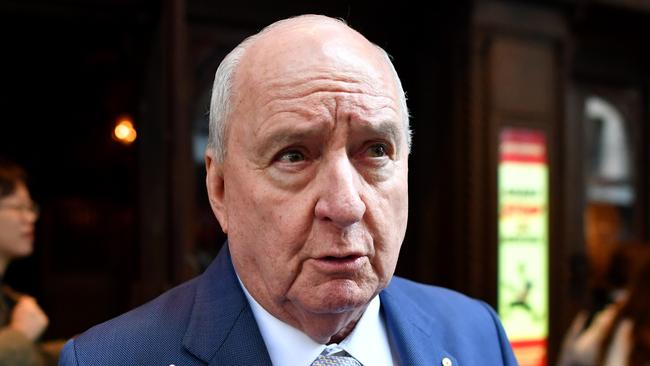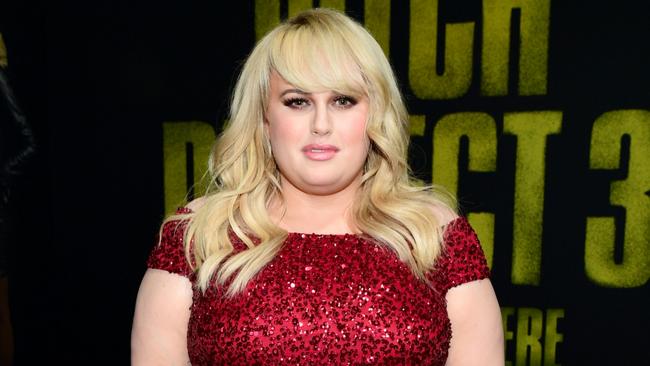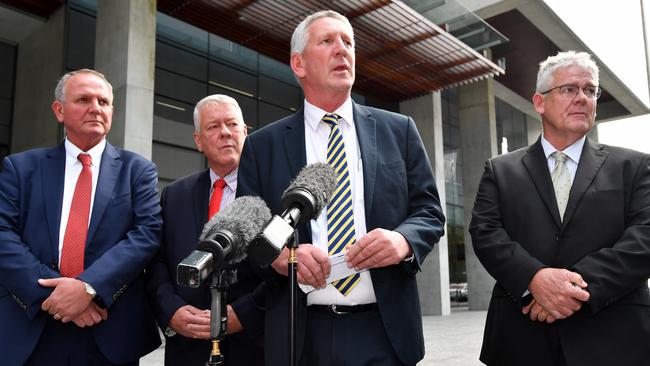What the Alan Jones payout means for free speech
A JUDGE may have found 2GB host Alan Jones to have been in the wrong, but there’s a much bigger issue at play here, writes Justin Quill.
LEGAL history was created this week when the biggest defamation payout in Australia’s history — about $3.7 million — was awarded by the Queensland Supreme Court.
In my view, society and free speech are worse off as a result.
The damages award was in favour of the Wagner family — a high profile and particularly wealthy Queensland family — against Sydney broadcaster Alan Jones and radio stations 2GB and 4BC.
Jones is not everyone’s cup of tea, which might explain why Twitter lit up yesterday as critics of the broadcaster and media haters coming from everywhere to pile on.
I’m not here to defend Jones. I don’t know whether what he said about the Wagners was true or not. We have to assume the judge got things right and that Jones was wrong. Certainly the Wagners are entitled to consider themselves vindicated.
But to put it simply, the $3.7 million pay out will have a chilling effect on the media. It will be in the back of the mind of every editor, news director or executive producer in Australia when they’re next considering whether to publish or broadcast a story.
You might think that’s a good thing. But think of the important stories that might never have come out if newspapers or broadcasters were too nervous to publish them. Think of the crooked pollies or the bent cops who have been exposed by the media over the years. And now imagine those same scumbags being free to go about their dodgy business because the media was too scared to expose them.

The economics must add up if publishers are to continuing exposing corruption and wrongdoing. With this week’s decision, publishing’s economic equation just got a lot worse.
Each of the four Wagner brothers received just short of a million dollars.
That’s a lot of coin, even for a family that owns a business valued at a billion dollars.
And that’s the point. Even if Jones deserved to lose, the damages award is just too high.
Just over 10 years ago, each state and territory brought in new laws that placed a limit on the general damages a plaintiff could receive in a defamation action. General damages are damages for hurt feelings and upset. They don’t include damages for losing a contract or a job.
The damages limit, or cap, is $398,500. You don’t have to be Einstein to realise that the almost million dollars each Wagner brother received is much more than that.
And don’t forget actor Rebel Wilson’s massive payout: originally about $4.6 million but later reduced to $600,000. And that’s still more than $398,500.
These payouts are more than the workers’ compensation you get if you lose an arm.
Just think about that for a moment. What’s worse: having some nasty things said about you, or losing a limb? I know which I’d choose.
When you put defamation payouts in the context of real life problems such as losing limbs, I think it shows they’re totally out of kilter.

So how does this happen? How can the pay outs exceed the cap? It’s because each state and territory Defamation Act says that if a defendant acts in a way that aggravates the damages, then the court can exceed the cap. In my view that means you can add the aggravated damages on top of the general damages even if that takes you over the cap.
But in the Rebel Wilson case — and now followed by the Queensland Supreme Court in the Wagner case — the court said that if damages were aggravated the court could throw out the cap entirely. It’s like it doesn’t exist.
I can tell you from experience that it’s almost impossible to defend a defamation matter without running the risk of aggravating damages. Acting for just about all media outlets in the Rebel Wilson case, I presented evidence to the Court of Appeal that suggested in about 87 per cent of cases, the media risks aggravating damages.
So if these judgments stand, the damages cap has, in effect, been killed and buried by judges and courts.
The cap was introduced by our parliaments and designed to reduce the regularity of massive damages payouts.
But in the last year or so we’ve seen three of the highest ever: to the Wagners, Wilson and WA barrister Lloyd Rainey. And I suspect that cricketer Chris Gayle could get another massive payout in his case against Fairfax Media. He won the case and we’re all awaiting the judge’s decision on the damages.

Parliament tried to lessen damages and the courts have increased them. That doesn’t seem right.
And don’t think these are victories for the average person. They’re not. We have the uber-rich Wagners, the rich and famous movie star Wilson and cricketer, Gayle. And no doubt the barrister Rainey is fairly well off.
See a pattern here? It seems that all our biggest defamation pay outs have gone to people in one of three categories. They’re either rich, famous or rich and famous.
That’s because the average person couldn’t afford to bring such an action. The possibility of an expensive loss can have a discouraging effect. Unless of course the risk of an expensive loss isn’t an issue for you because you’re rich and famous.
Section 34 of the Defamation Act requires that any damages awards has an “appropriate and rational relationship” to the harm caused. If an award of damages for nasty words is worth more than a lost limb, well, in my view what’s “appropriate and rational” needs to be readjusted.
Justin Quill is a media lawyer who acts for the media including the Herald Sun, 2GB and 4BC.
Originally published as What the Alan Jones payout means for free speech
